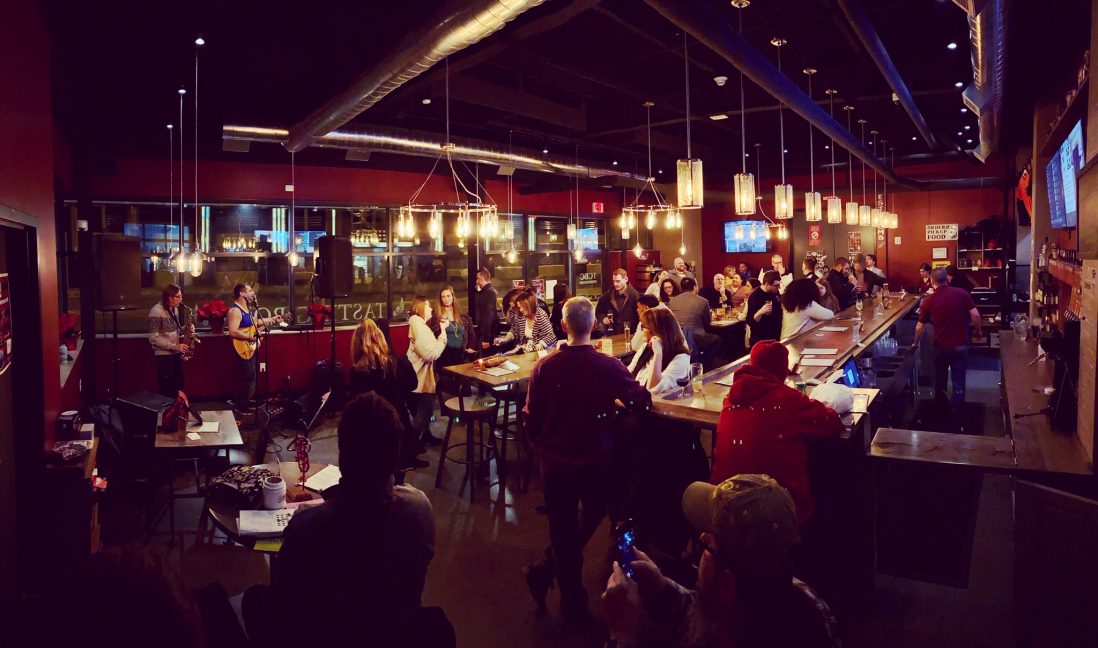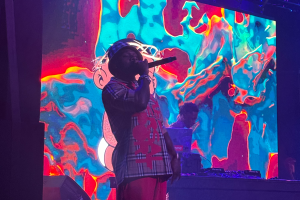Tapping new ideas
Tapping new ideas

When Talking Cursive Brewing celebrated its first-year anniversary on March 7, the world was a different place. On that day, the Syracuse brewing company looked back at a year of successes and a future full of promise. The brewery hosted successful trivia and karaoke nights, won first place in the Syracuse Winterfest Beer Tasting, and started a summer to fall concert series.
Life changed suddenly just over a week later, when, on March 16, Gov. Andrew Cuomo announced the state would close all non-essential businesses, including bars and restaurants. “We had just hit our first anniversary, really getting some momentum and then bam,” says owner and head brewer Andrew Brooks. “It happened very fast.”
“It” is the state’s response to the novel coronavirus pandemic.
Closures of brewpubs across the country has devastated the craft beer industry. The Brewers Association conducted a study in mid-March and found that out of 938 small breweries, 95 percent said their year-over-year sales would decrease this year by an average of 60 percent, much of it due to the lack of on-site sales. Many craft breweries rely on on-site sales for the bulk of their business. Those sales include taproom tastings, beer flights, and food. “On a typical day, 40-50 percent of our business is flights, people trying new things,” Brooks says.

Perhaps most disastrous, more than 50 percent of the respondents to the Brewers Association study said that, under current conditions, they can only sustain their business for a max of three more months. In other words, if the stay-at-home order continues, thousands of breweries may have to close their doors permanently.
CraftBeer.com assesses the situation bluntly. “The majority of the more than 8,000 breweries in the United States are small and independent,” its website says. “Forced shutdowns will put many family businesses on the brink.”
In addition to on-site sales, many small breweries rely on revenue from festivals, events, and concerts, many of which take place in the summer months. The cancellation of those events will likely hit the breweries businesses hard. “It’s going to continue to pinch heavily on these breweries,” says Andy Sparhawk, acting editor-in-chief of CraftBeer.com. “It’s not just the beer that’s keeping them afloat, it’s these major events and festivals.”
Unlike restaurants and bars, craft brewers follow a traditional taproom or brewpub model – a tasting room, a beer-specific bar, and some kind of food option available. “People come to restaurants for the food, and people come to breweries for the beer, and sometimes there’s food available,” says Sparhawk. “But when given the choice to order takeout from a restaurant or takeout from a brewery, people often would prefer the former.
To help customers find their favorite beers and the brewers who make them, CraftBeer.com put together a list of over 1,200 breweries. The list includes information about the ways that the industry is adapting, including online ordering, take-out, and delivery options.

Yet Sparhawk is skeptical that these options will provide a long-term solution. “The way these breweries have been set up, with a taproom model or a brewpub model, putting these events on to bring people in and bring in tourism, that’s all gone now,” Sparhawk says. “So we’ve seen this rise in deliveries and curbside beer options and beer and food to go. It’s probably not going to sustain them for more than several weeks into a month or two.”
To assist small brewers make it through this challenging time, Sparhawk recommends buying merchandise, gift cards, or using online delivery.
Brooks says that Talking Cursive has started packaging for online orders, but the company has found that food and beer delivery is not viable for them due to their restaurant competition and inexperience with the food business. “We’re really just rethinking every aspect from the products we’re offering to how we offer them going forward,” Brooks says. In the meantime, Brooks says the company is looking into additional opportunities, like virtual happy hours, contests, and other methods of engaging with customers.
Brooks is unsure that these ideas will build a bridge to the other side of the pandemic. “It’s just like, how long can we do it for?”
Despite his business woes, Brooks remains concerned about public health. “As much as I’d love to reopen,” he says, “I’d hate to reopen, and then all of a sudden it comes back.”

This article is part of the Fermata: Arts and Culture in the Time of Coronavirus series reported by students in the Critical Writing course at the Newhouse School. Fermata features stories on the impact of the pandemic on a wide range of artists and cultural figures, from musicians and comedians to restaurateurs and boutique owners.






